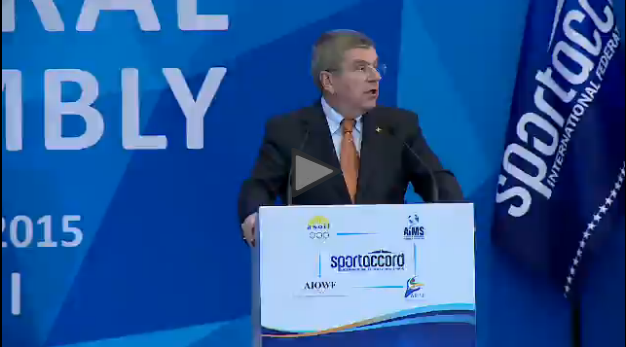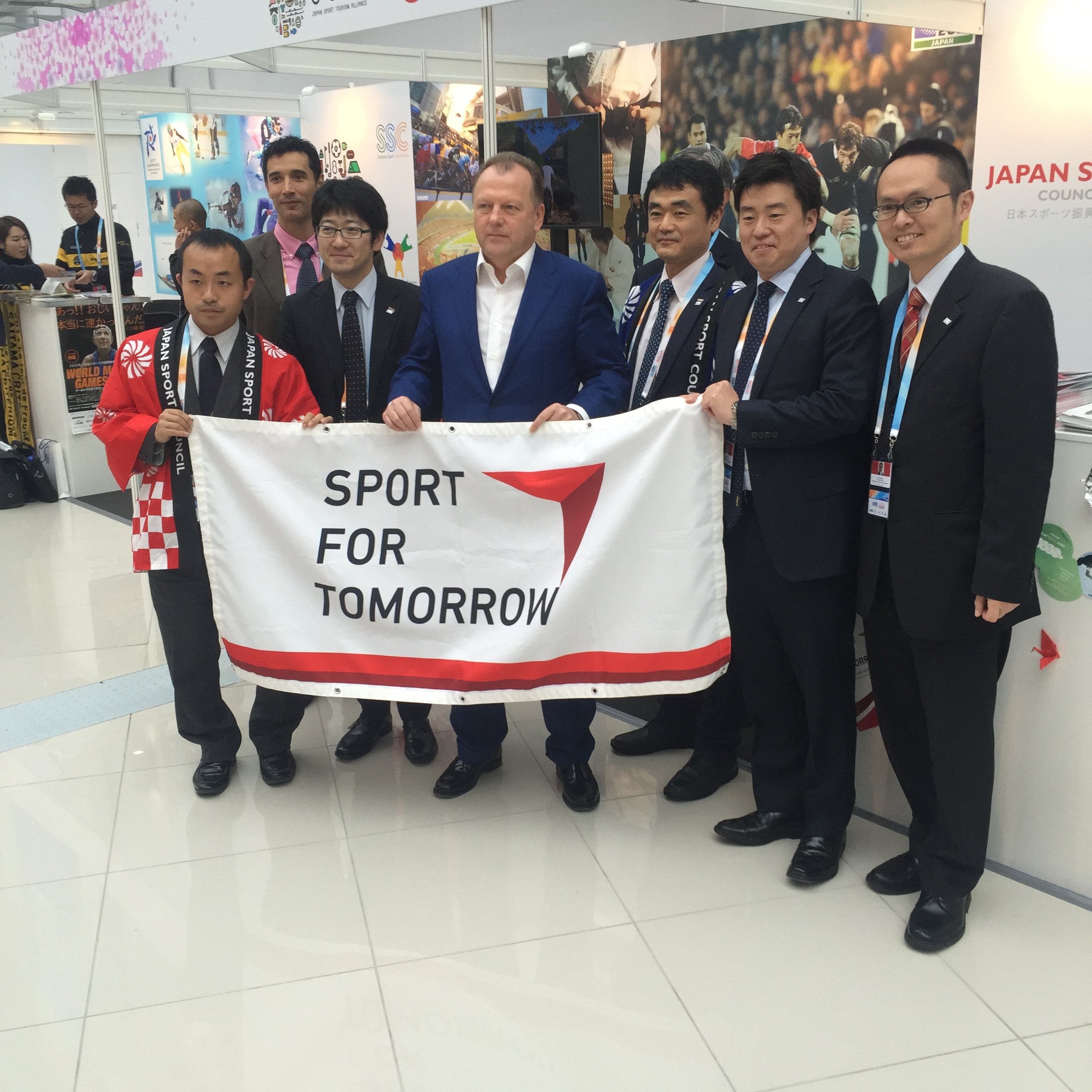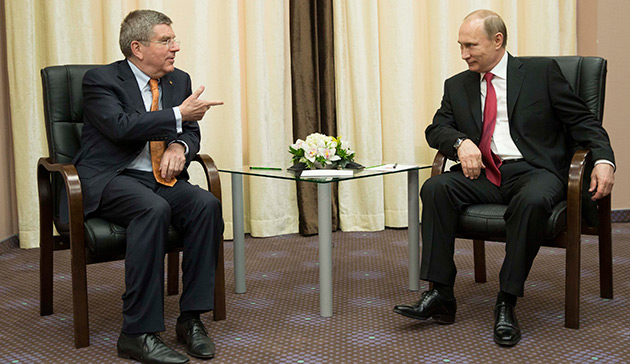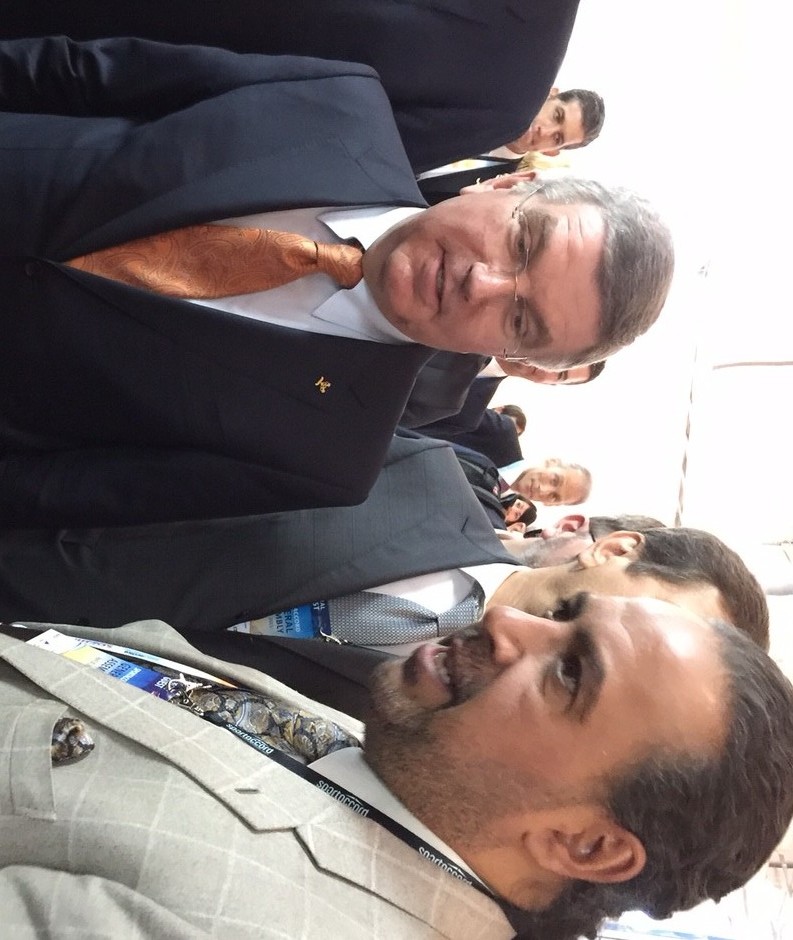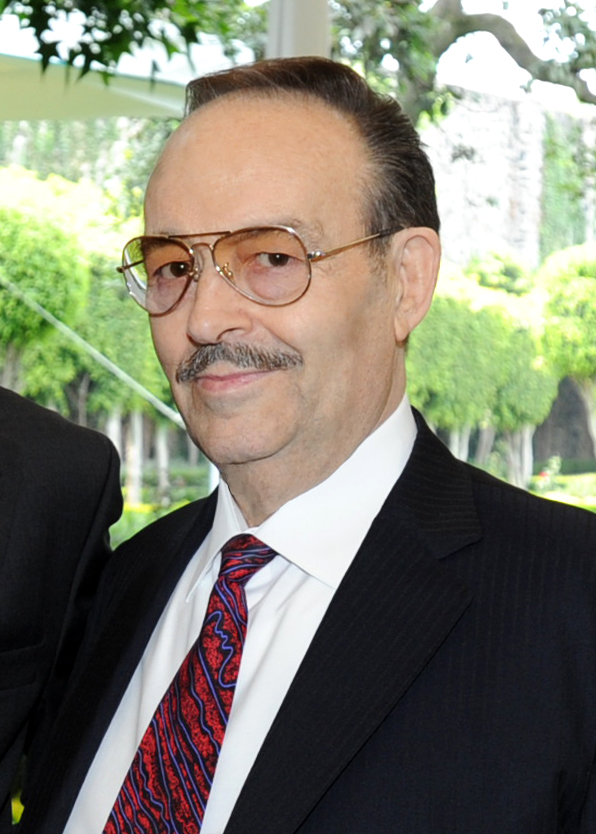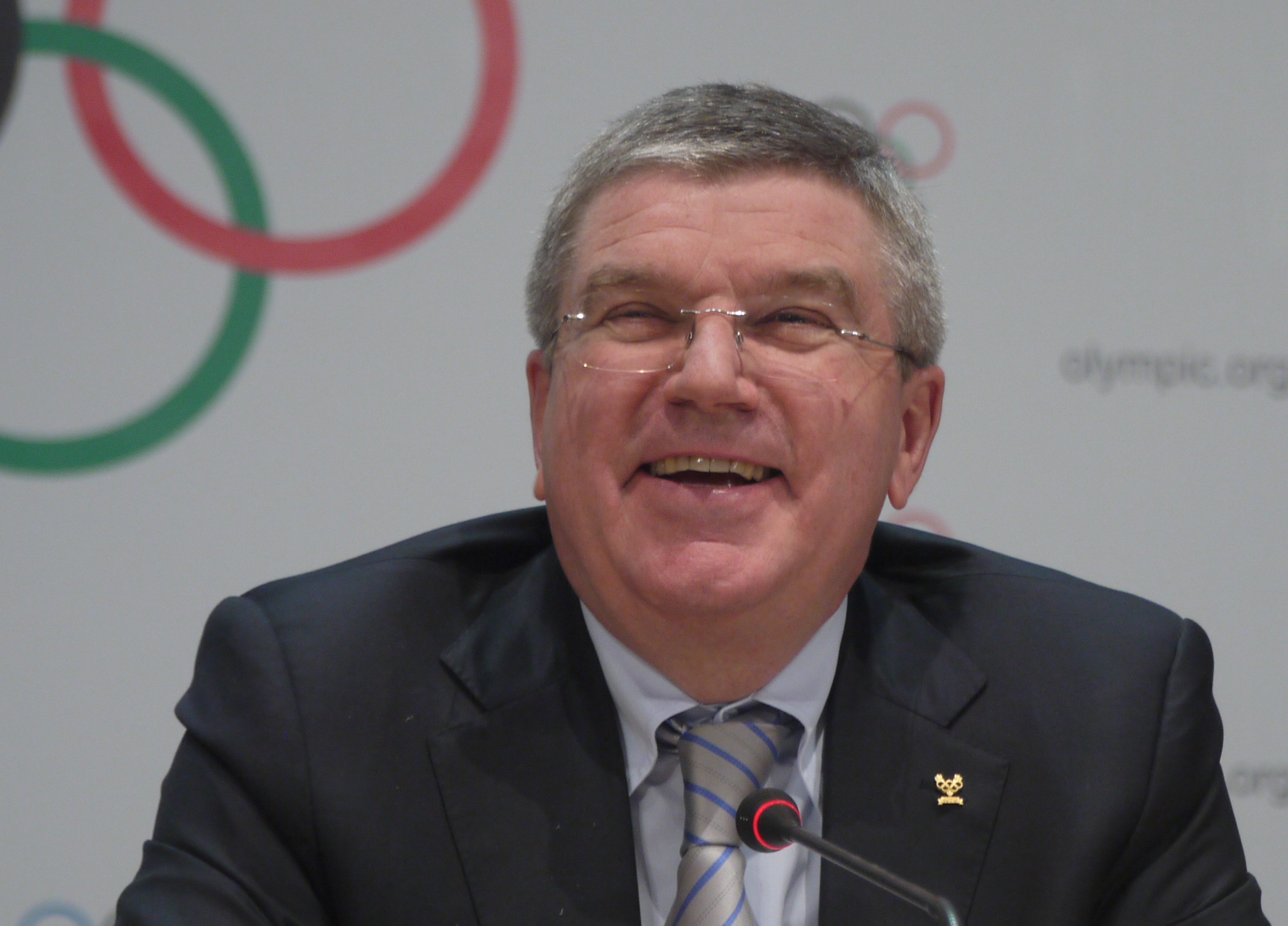SOCHI, Russia — There are apples. And there are oranges. The International Olympic Committee this week put out a news release, amid the provocation launched by SportAccord president Marius Vizer, that all but begs any and all to make the comparison. IOC president Thomas Bach, the release noted, enjoyed “another full week” that included meetings around the world with world leaders and dignitaries — and kids! — “championing the importance of sport in society and its ability to spread peace.”
Draw your own conclusions, the IOC seemed to be suggesting as it (finally) ramped up its communication machinery, the release including a video and eight — count them — photos of the president in action.
After just over a year and half as president, this — Bach as Action Man — has come to be his meme.
This hardly — ask Vizer, among others — makes Bach perfect.
At the same time, it makes for a marked contrast to Bach’s predecessor, Jacques Rogge, who assuredly preferred a different pace and style, particularly in the countdown of his 12 years in office.
The dignitary count for the one week on Bach's agenda, according to the IOC release, included United Nations secretary-generals (one), presidents (four), prime ministers (two), ministers (various) and more.
The eight pictures included one of Bach with Russian president Vladimir Putin.
Vizer and Putin have long enjoyed a close relationship. Then again, the very first telephone call Bach received after being elected IOC president, and within just minutes -- from Putin. Here in a country where Kremlinology was once -- and is maybe again -- something of a science, the symbology could hardly have gone unnoticed for close watchers of the Olympic scene.
Also this, from the release: “The President held a number of discussions with the Russian Minister for Sport, Tourism and Youth, Vitaly Mutko, about the legacy of the Sochi Games and the development of sport in Russia. He also held talks with President Putin’s key advisor, Igor Levitin.”
This mention, too, that Bach was accompanied by IOC members Vitaly Smirnov and Alexander Zhukov — Smirnov the IOC doyen, that is, its senior member, and Zhukov, the president of the Russian Olympic committee, a deputy prime minister and, left unsaid, chairman of the 2022 evaluation commission.
Later, this, from Bach’s meeting with Putin: “The Russian President emphasized that the Russian authorities continue to work closely with the IOC, and he praised the ‘excellent relations’ with the IOC as ‘leader of the Olympic Movement.’ “
How about them apples?
From Day One, Bach has set out to reshape the IOC presidency, operating in a style evocative of Rogge’s predecessor, Juan Antonio Samaranch.
Samaranch served as president from 1980 until 2001, Rogge from 2001 until September 2013.
One key difference between Bach and Samaranch, perhaps: Samaranch preferred a big-tent approach in which someone like Vizer would have been brought in closer to IOC circles, maybe even made an IOC member. Vizer noted in his address Monday that he had repeatedly sought dialogue with the IOC but gotten no response.
The next chapter in the relationship between Vizer and Bach, of course, is yet to be written. And Vizer declared Thursday, “I don’t give up.”
Rogge was often more into process. Bach gets and respects process. But what he wants is getting stuff done — as he said in his remarks here Monday, in response to the provocative “Welcome Address,” as the IOC release put it, delivered by Vizer that opened the SportAccord convention.
“Let me summarize,” Bach said in closing his response. “Our doors are open to each and every one of you. We are making this offer of cooperation and support to each and every one of you. I thank you for having taken it already in the last one year and a half and having contributed to this effort of open dialogue and concerted action within the sport movement.
“And when making this offer, and when taking this offer, we should always consider that sport at the end is about results. It’s in the competition but it’s also in the work we are doing. This is not about plans and projects in sports. It’s about results and actions. And when taking these actions we have to be efficient …”
In an interview here, Bach paid tribute to Rogge even as he made clear that the challenges the two men face are at the same time similar yet very different.
“We’re different types. And it’s a different style. He had his way to approach issues. I have my way. He had his challenges. I have my challenges. It’s different times.
“He had his mandate … my task is to consolidate the success left by Samaranch and then at the same time to address the issues of good governance and anti-doping. This [Rogge] did in an outstanding way. Now the world is different.
“As I said in Monaco,” at the session last December at which the full IOC approved the 40-point Agenda 2020 reform plan that Bach championed, “now today the people are asking more and other questions than five years ago.”
For those interested in another comparison, NFL commissioner Roger Goodell’s compensation package in the 12-month period that ended March 31, 2013, totaled $44.2 million.
Bach is technically a volunteer who earns no salary.
That said, the IOC, as part of the Agenda 2020 view toward enhanced transparency, recently announced it would provide an annual 225,000 euro — about $242,000 — “indemnity” to reimburse Bach for his 365-day-per-year IOC mission.
“It is not a salary,” he made clear, adding a moment later that the IOC ethics commission “fixed the amount” and, “I accept it. There was no discussion or whatever about this.”
The IOC also covers Bach's living expenses in Lausanne, Switzerland, which in Rogge’s last years ran to about $700,000.
By these standards Bach is an outrageous bargain.
The IOC presidency is a 24/7/365 job. The travel, stress and criticism — all of which Bach knew going in, so for sure no pity party — can be relentless.
The challenge is elemental: to try to make a difference in a world in which a lot of people wonder what the IOC, and the Olympic movement, are all about.
It’s clear, for instance, that in the most-successful recent editions of the Games — among them, London 2012, Vancouver 2010, Sydney 2000 — there ran through those cities, indeed those countries, an intangible but for-sure there feeling. Maybe, at the risk of being geeky, that’s the Olympic spirit.
In those places, there was something of a real commitment, beyond just words, to the Olympic values — often defined as respect, excellence and friendship — and beyond just the 17 days of a Games.
This is not to diminish other recent Games hosts. Or to question the wisdom of taking the Games to places such as China, Russia, Brazil and elsewhere. Hardly. The movement is, after all, worldwide.
The issue is how to integrate the Olympic values both locally and globally in a way that ties in with a particular edition of the Games — and even before, in the bid process.
It’s a question that is both simple and incredibly complex.
“With the Games,” Bach said, “you’re not bringing the values only to the host countries. You show the values to the world. It is the message coming from the Olympic village and from the ideals of the Games. They do not stop at the boundaries of the host country. They go to the world. This is the strong message.
“Therefore the host country is important, is the focus. But our message is not only addressed to the host country.”
He added:
“I think the overarching challenge” of the movement, often spotlighted on the IOC presidency, ”is to define the values for today’s world.
“I can give you an example. You spoke about the fight against doping or match-fixing. This for me is not the value. The value is the protection of the clean athlete. This is I think the definition for today in this respect.
“Then we also see that we have been speaking about other values and the definition for today — we needed to have another definition of non-discrimination. It was needed 10 years ago. This is what the Olympic Agenda [2020] is also about.
“When changing the fundamental principles of the charter — the fundamental principles mean something … they are not foreseen by change every year. This is the overarching challenge and then it comes to your question to disseminate it, and to promote it.”
Back to Bach’s closing remarks at the opening of SportAccord. There he said:
“… What we all need for our sports, if we want to promote our values, if we want to be a respected part of society, if we want to grow our sport, if we want to attract young people, if we want to show to the world that sport has values and can do something for society, if we want to do all this, if we want then there to achieve our mission of organizing sport and to put at the same time sport at the service of society, then what we need all together is credibility.
“And this credibility we can only achieve if we have some unity in all our diversity,” he said, turning once more to his familiar slogan from his 2013 campaign for the IOC presidency.
“And in this respect and in this sense I invite you all to bring your diverse opinions to the table, to bring your diverse projects, your diverse goals to the table. But then be united in our concerted and common effort for the growth of sport and a better society for sport.”



